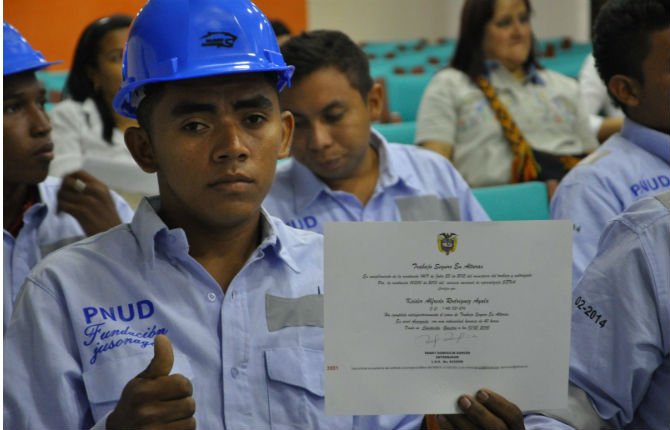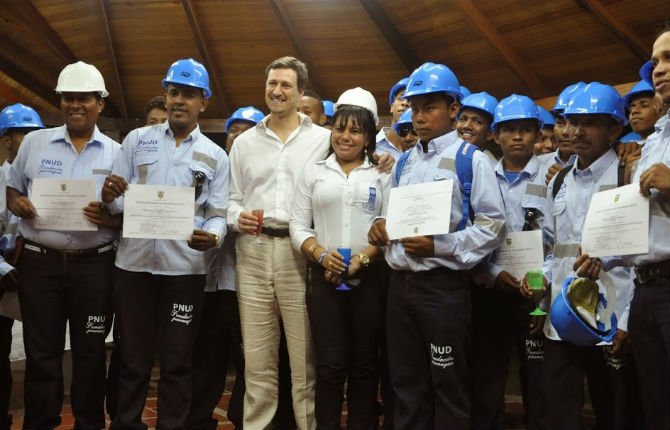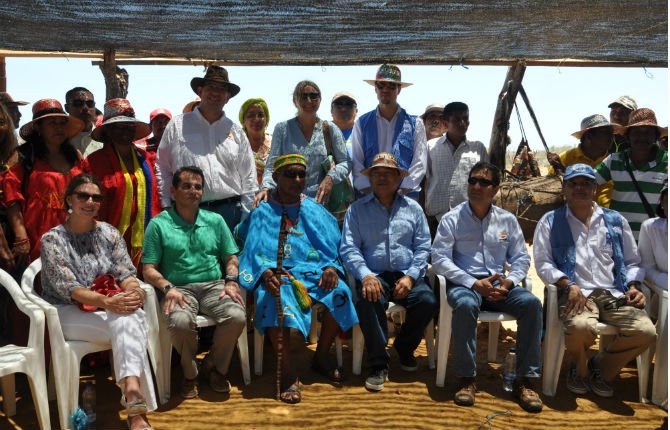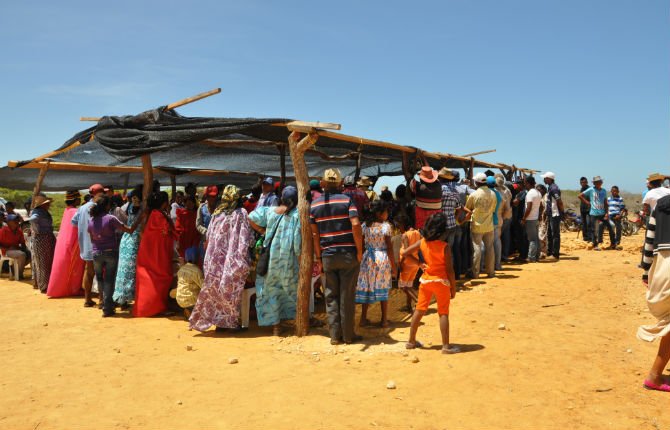Highlights
More than 3,000 people have managed to get access to drinking water.
The construction of two small wells and four jagüeyes have benefited 1,600 people from 18 communities.
1,200 wells and mills in the department will have ongoing maintenance that will benefit 650 families.
180 families are participating in the food production program.
The local indigenous communities are trained to repair the water wells and windmills themselves.

For the Wayuu Indians who live in the Guajira Peninsula to the northeast of Colombia, dreams are a way of receiving messages from the great beyond. The group’s leader receives signals indicating where to find water below the desert soil. For the Wayuu, water is a matter of life or death.
This resource has always been scarce in La Guajira, a region characterized by arid and desert landscapes. With a population of 300,000, the Wayuu Indians live in huts along the 15,300 kilometers of desert land, facing an ever-present challenge to access to water.
In 2014, the situation became a humanitarian crisis due to lack of water and food. Since then, the UNDP in Colombia, in partnership with the private sector (Repsol and Petrobas oil and gas companies) and the Government, has sought ways of supplying water to these communities.
Though there are 1,200 wells and mills in the area, 70% are inoperable due to lack of maintenance. Through the “Regional Strategy for The Equitable and Sustainable Management of the Hydrocarbon Sector” project 25 technicians were trained in how to work on photovoltaic systems in high-rise areas, enabling them to perform ongoing maintenance to the water wells that will supply water to approximately 650 families.

The training is part of a Government initiative to promote the participatory sustainable development initiatives in regions with oil and gas activity as a means of building lasting peace in the area.
To the south of La Guajira, in the Puerto Virgen district, a partnership between the Wayuu community and Repsol with technical support from UNDP, has led the construction of two small wells and four jagüeyes benefiting 1,600 people from 18 communities. The local school has been able to receive two tanks filled with drinking water.
Prior to this, women and children from this community had to walk long distances in search of water, with no guarantee that they would find any. Now they have at their disposal wells supplied with water from the tanks and jagueyes.

This initiative is part of the “Project for the Management Programs Benefiting the Communities (PBC) of the Hydrocarbon Sector”. The PBCs are social investments carried out by companies in the oil industry as part of their social responsibility outreach policy in accordance with Government objectives.
In addition to providing water, the project trains the community how to foster partnerships to promote economic growth and development.
In Caicemapa, the land is less arid and several families can have small wells in their homes. The "More Water, More Food, More Income” project supports the community with 52 sheep, nine wells for fish farming and five hectares for growing crops such as rice and beans. Currently being replicated in two additional communities, it is hoped that in less than six months’ time 180 families will be able to benefit and receive the resources to be able to work the land.
Implemented by UNDP in partnership with the communities, the initiative is based on strategies for early recovery and improving the quality of life of those affected by climate change.
"We do not want more bowls of food. What we do want is for people to help us to grow our own food. That is lasting peace, growing crops on these lands is lasting peace”, says Judith Gonzalez Pinayu, the local indigenous leader.
In Judith’s opinion, this has meant that her family can now work together. “I am very proud of my son, who is the one leading the fish farming initiative. When he is not here, his brothers and nephews come to work. And other families too. This has brought us together as a community," she declares.

Arnaud Peral, UNDP’s Resident Officer in Colombia, considers that the most important aspect is that the communities can see positive effects on a daily basis. "Seeing a community being able to dream - that is how peace is being built here,” he says. "We are very happy because we are sowing the seeds so that, in the future, the community can take ownership of this program."
According to Peral, these projects "are based on cooperation, friendship and a better future. There can be no peace without development".